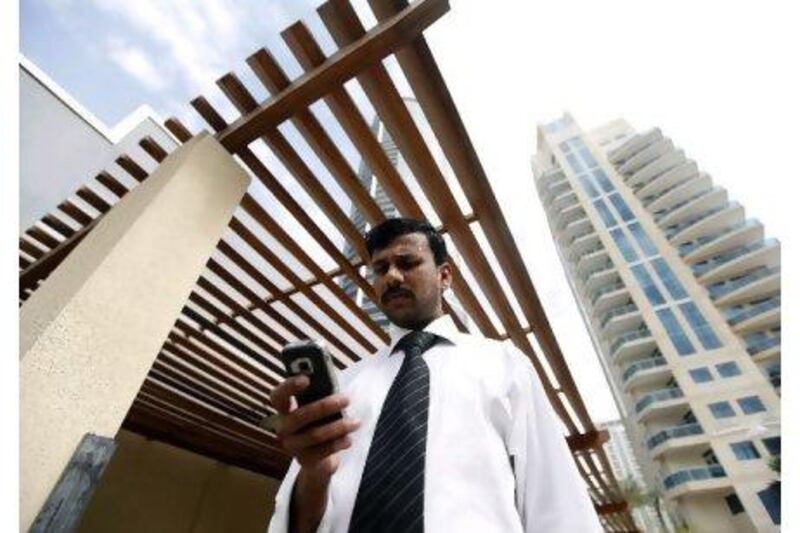Dubai // Rajalingam Thathaiah takes pride in the fact he was the first in his labour camp to sign up to Facebook.
The first friend request he extended was to his mentor, who is the reason he can now use a computer.
"I learnt how to open a Facebook account last week," said Mr Thathaiah, who works for Berkeley Cleaning Services. "I can also make PowerPoint presentations and Excel spreadsheets."
He was recently promoted to a data entry job because of his achievement.
Mr Thathaiah's mentor, Rex Prakash, is also the co-founder of SmartLife, a non-profit organisation that works towards improving the lives and skills of blue-collar workers in Dubai.
"I was taken aback when I got the [Facebook] invitation, but at the same time felt really proud as well," said Mr Prakash, who works as a new media specialist in Dubai when he is not volunteering.
Last year, Mr Thathaiah, along with three other co-workers, was enrolled in a six-month computer course as part of SmartLife's Adopt A Laborer programme, which pairs blue-collar workers with white-collar mentors.
The aim was to help increase public interaction with a part of UAE society that was often ignored, said Arun Krishnan, who began SmartLife with Mr Prakash two years ago.
"We completely abstain from support through financial aid," said Mr Krishnan, who is an IT professional by day. "The idea is for people to commit some time in the week to mentor a labourer.
"It could be by teaching them something, like English or computers, or it could be a simple task of picking up the phone and speaking to them as a friend, finding out if they need anything and enquiring about their family back home."
The organisation has launched a web portal for individuals to register for community service.
Mr Prakash said they had a database with detailed information about each labourer.
"Each labourer's ambitions, education level, strengths and weaknesses are in a database," he said.
"When someone registers with us they can select the labourer they want to team up with."
He said this could be on the basis of language or a certain skill they would like to impart.
"We then advise the sponsor to speak to them over the phone and, if possible, meet them at least once a month to understand what they really need."
The sponsor then keeps a diary where he notes down milestones he would like his partner to achieve.
"He can set objectives for his fellow mate that can be achieved in a year or two, either alone or through the assistance of other volunteers," Mr Prakash said.
According to Mr Krishnan and Mr Prakash, a typical day for a labourer begins at 4.30am, waiting in the bathroom queue, after which they need to get ready to be transported to their job site where they spend at least 11 hours, only to come back home and attend to chores at the camp.
"This leaves them with no time for themselves," said Mr Krishnan.
"Even if they have aspirations, which many of them do, they do not know how to go about achieving them and that is where we, or rather the members, can help."
SmartLife now has more than 30 volunteers and 10 organisations that support the cause.
Tarek Miknas, CEO of the Fortune Promoseven Group, which supports Adopt A Laborer, said his company wanted to be able to make a difference to the people who toiled every day to build the city.
"Whether that's by setting them up with free English language lessons every week, with etiquette or computer training classes, or by providing mentoring or trips outside labour camps … it's a small and satisfying way of helping them," he said.
To register, visit www.adoptalaborer.com






